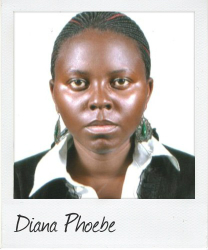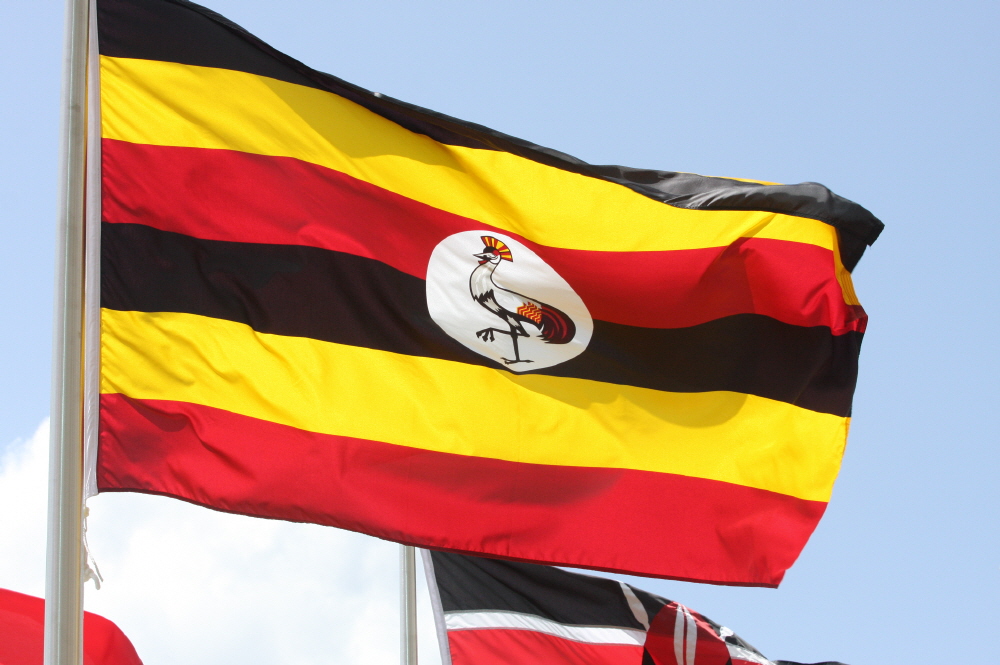“Tourism is one of the fastest growing sectors in Uganda”
November 6th, 2012 Tourism started off well after Uganda gained independence in 1962, says Diana Phoebe, 25, a Commonwealth Correspondent from Kampala. But after decades of decline the government has now realized the economic importance of the sector and assigned high priority to restoring it.
Tourism started off well after Uganda gained independence in 1962, says Diana Phoebe, 25, a Commonwealth Correspondent from Kampala. But after decades of decline the government has now realized the economic importance of the sector and assigned high priority to restoring it.
The black, yellow, and red of the national flag is everywhere in this exceptional year in Uganda’s history.
In supermarkets, clock towers at the city roundabout, on street lights and at trade shows the flags are flying. There are more flags where people host festivals, carnivals, jazz safaris, live performances and barbeques to celebrate the excitement of 50 years of Independence.
Uganda has quite a number of things to celebrate.
We earned an Olympic gold medal after 40 years of drought. Who knew that a small country in East Africa would not leave the 2012 Olympic Games in London empty-handed! Most people were expecting all the medals to go to Kenya but we also had our chance.
Finally we can say the 25-year-long war in Gulu has ended and many people are settling back in their communities. The people in Gulu still struggle with the scars, but now they can try to rebuild their lives with the hope that Kony will be caught some day.
We can say that there is free Universal Primary Education and Universal Secondary Education which has helped many children to get a chance to go to school. This program has many challenges but we can be certain about a move to ensure access to education for every individual in this country.
And as Uganda marks 50 years of Independence, we are excited to have been named the best tourist destination in 2012 by Lonely Planet. http://www.lonelyplanet.com/uganda/travel-tips-and-articles/76856
Tourism started off well after Uganda got independence in 1962, growing to a peak in 1971 when the country welcomed over 85 000 tourists. The industry became the third-highest foreign exchange earner after coffee and cotton.
That changed in the late 1970s and early 1980s as the tourism sector started to decline, with fewer people visiting because of political instability and the rule of Idi Amin.
When President Museveni took power in 1986 the economy started to stabilize again, although there were still challenges. Rebel groups, for example, made it impossible to build infrastructure like hotels and roads because they kept looting towns and terrorizing people.
Still, the tourists started coming in slowly, though very few went to places like Kidepo National Park and Murchison Falls (formerly known as Kabalega National Park) because they feared the rebels.
When the government realized how important the tourism sector is to economic development, it assigned high priority to restoring the industry.
In February 1988, ministry officials announced a plan to build four new hotels worth US$120 million as part of a barter trade agreement with Italy. The Italian company Viginter agreed to construct 200-room hotels at Masaka, Fort Portal, Jinja, and Mbale.
International tourist arrivals gradually increased, from about 32,000 in 1986 to more than 40,000 in each of the next two years. Tourism earned roughly US$4.2 million in 1988.
We are proud that we have Bwindi as one of the National parks of the world with the only existing mountain gorillas and Ishasha with tree climbing lions. We have Queen Elizabeth with elephants and crater lakes; Kibale with its many cunning species of primates; Rwenzori Mountain with its snow capped peak Margherita. There is Murchison Falls with its captivating falls, enchanting giraffes and entertaining crocodiles, and Lake Mburo with its graceful zebras and antelopes. That is just a sneak peak of what Uganda has to offer. The list is endless!
So let us celebrate 50 years of a country that has come far. We may still have flaws, but it does not stop us from being excited about how much we have accomplished. You can always celebrate with us as we mark 50 years of Independence.
Photo: Commonwealth Images
………………………………………………………………………………………….
About me:
I am a Ugandan, from the Buganda Clan, and have a passion for my country. I love writing, reading, travelling and knowing what touches people the most.
I love expressing myself but do not forget the fact that there other people of different races, cultures and religions in the world who have totally different opinions from mine. I also think that no one should be denied the freedom to express themselves.
…………………………………………………………………………………………………………………
Opinions expressed in this article are those of the author and do not necessarily represent the views of the Commonwealth Youth Programme. Articles are published in a spirit of dialogue, respect and understanding. If you disagree, why not submit a response?
To learn more about becoming a Commonwealth Correspondent please visit: http://www.yourcommonwealth.org/submit-articles/commonwealthcorrespondents/




